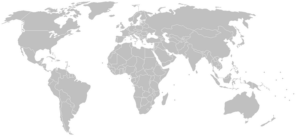News
Denmark’s inequality not as commendable as survey suggests, claims economist
This article is more than 10 years old.
Income inequality has reached an all-time high, but not in Denmark …

Denmark is least unequal, followed by Slovenia, Slovakia and Norway (photo: Sesmith)
A leading economist has said that while Denmark has the least inequality among the Western countries, according to a new report from the Organisation for Economic Co-operation and Development (OECD), there are other factors to take into consideration.
Denmark placed first in the OECD’s latest rankings, followed by Slovenia, Slovakia and Norway.
The figures are calculated using the Gini co-efficienct index, which is the standard economic measure of income inequality. According to the Gini scale, a society that scores 0.0 has perfect equality in income distribution, whereas a score of 1.0 indicates total inequality – where just one person corners all the income. Thus, the higher the number is over 0, the higher the inequality.
Denmark’s Gini co-efficiency is measured at 0.249, against 0.250 in Slovenia, 0.251 in Slovakia and 0.253 in Norway.
Not all good news
However, Mads Lundby Hansen, the chief economist at Cepos, was not impressed by Denmark’s first place position. Denmark has also been measured by the OECD as having the sixth lowest growth potential, he contended.
“Government reforms will pull inequality up in Denmark over the coming years,” Hansen told Jyllands-Posten.
The government’s top tax bracket has fallen from a high of around 65 percent in the first decade of the 21st century to today’s system that ensures nobody in Denmark pays more than 51.5 percent of their gross income.










































